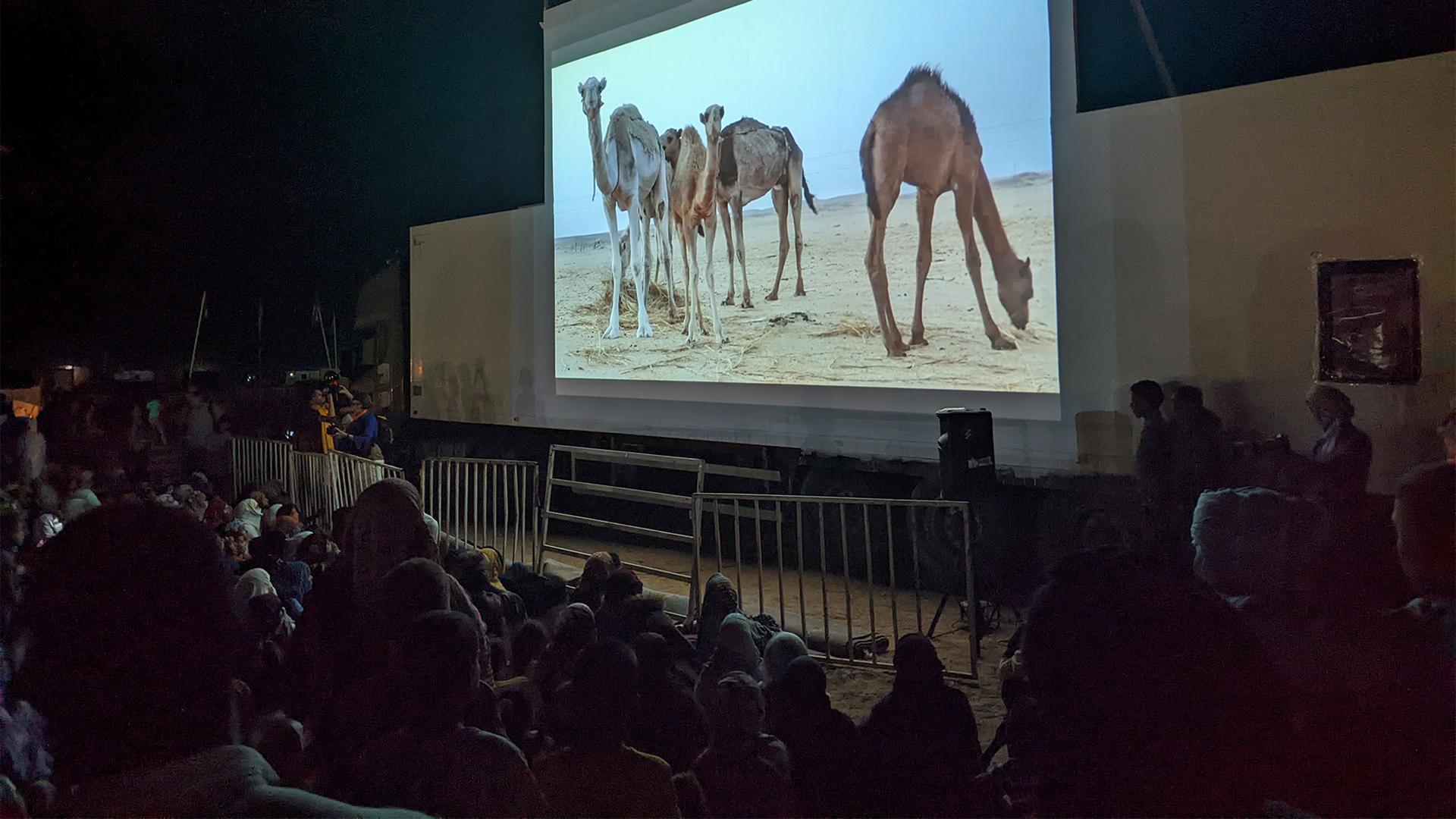Film festival at refugee camp near Western Sahara amplifies voices of displaced people
It’s been nearly 50 years since Morocco invaded its adjoining territory of Western Sahara, forcing hundreds of thousands of native Sahrawi people off their lands, and constructing a 1,700-mile wall lined with 7 million landmines to divide the region in two.
Human rights groups say that Moroccan authorities have a long history of jailing, torturing or disappearing most pro-independence Sahrawi voices, but the situation has gone largely unnoticed by the international community.
To break through the silence, Sahrawis, now living in refugee camps in neighboring Algeria, came up with a creative solution: They decided to hold a film festival while in exile to attract attention to the plight of what’s been called Africa’s last remaining colony.
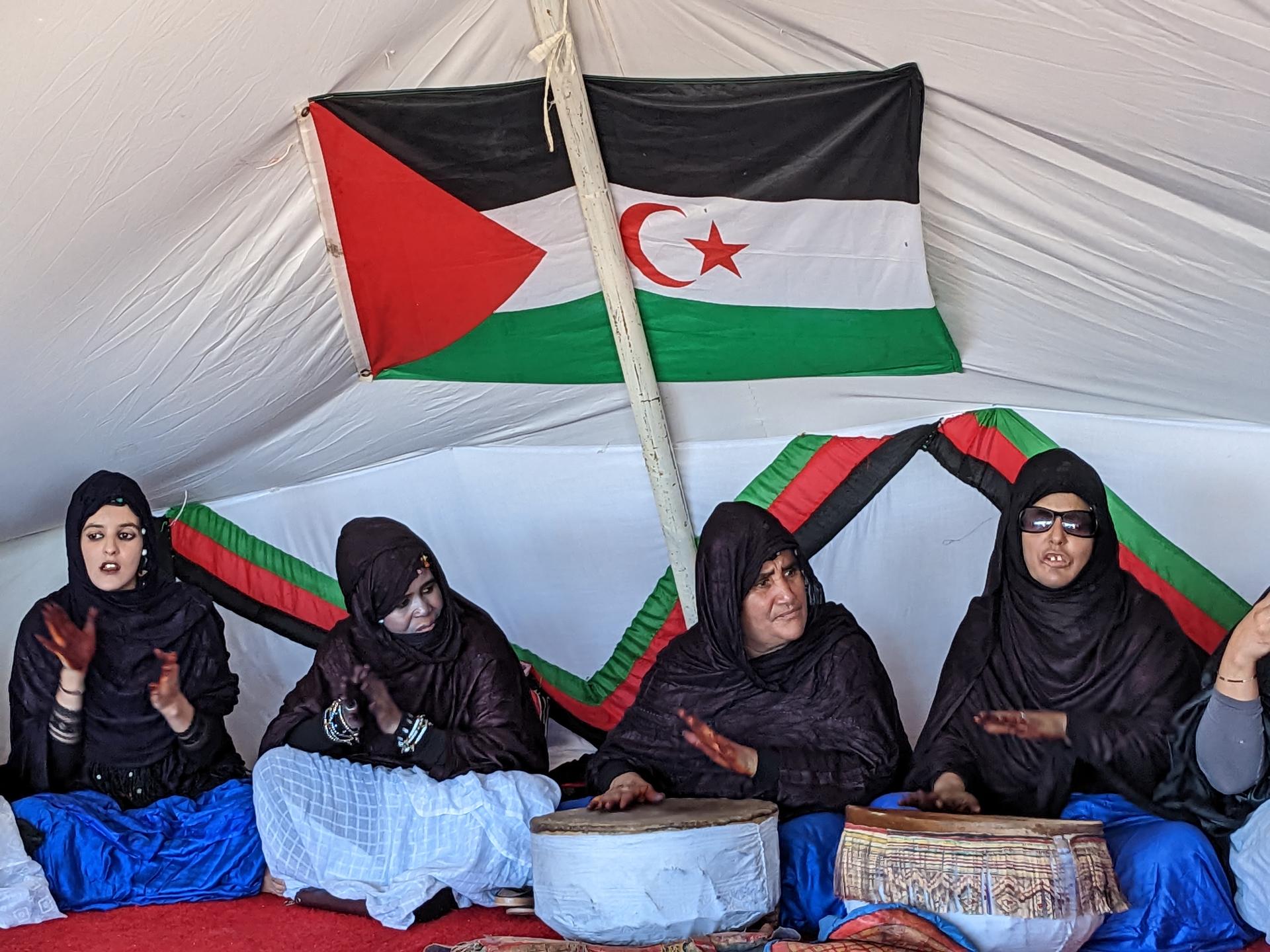
Director Tiba Chagaf, standing on a dusty outdoor stage in the Ausserd refugee camp near the city of Tindouf, Algeria, a few weeks ago, kicked off this year’s FiSahara International Film Festival with a rousing call out to his fellow Sahrawis, to which the crowd responded, “We join our hands together for freedom.”
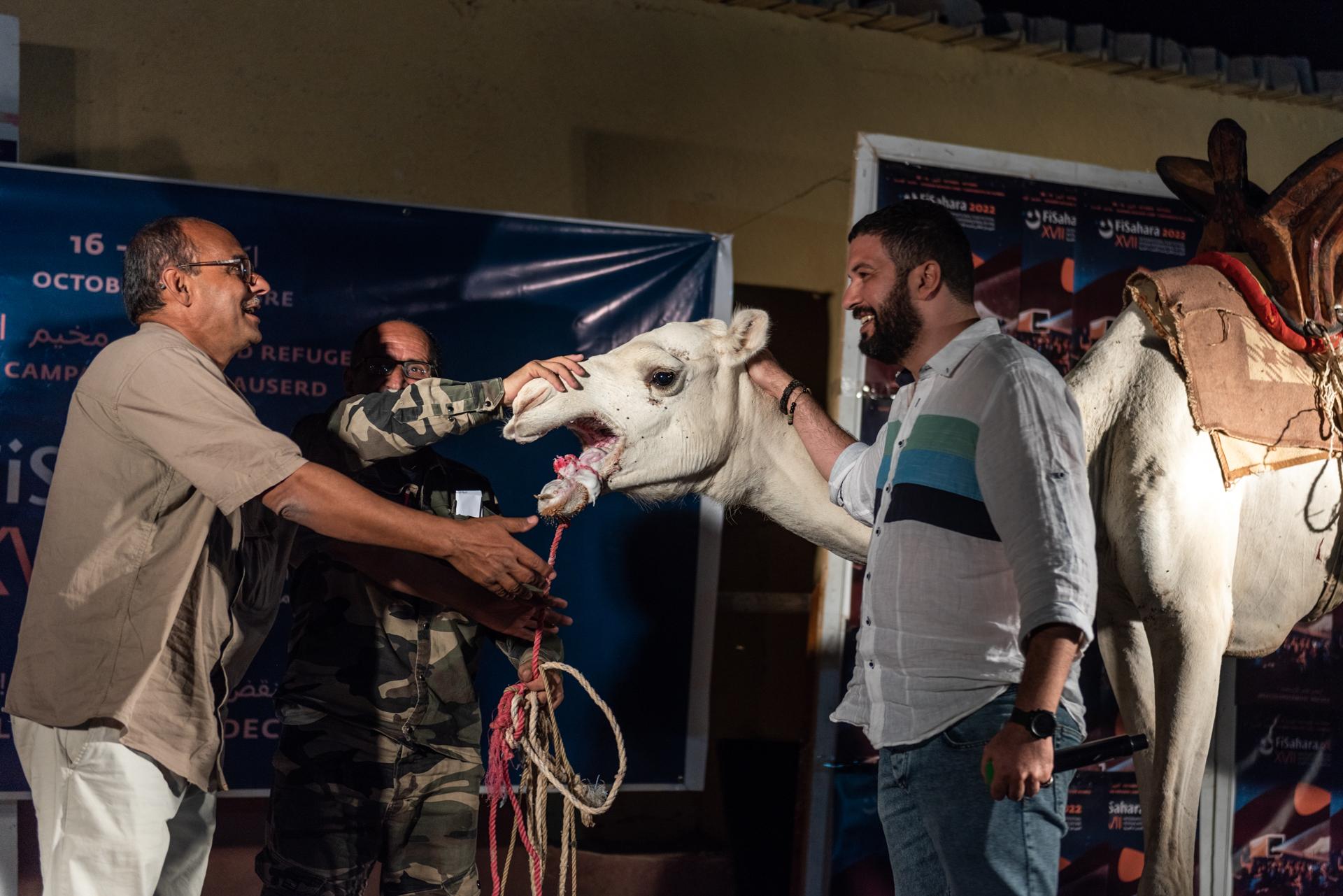
The idea was first launched back in 2003 by a group of filmmakers from Spain — Western Sahara’s former colonial power. Chagaf said that the festival has two main goals. It’s partially to spread awareness of the Sahrawi push for freedom and self-determination, but it’s also about helping them to document and archive a culture whose very existence is under threat — in an attempt to preserve a record for future generations.
“If we just give people food to fill their stomachs, but not food for their minds, they won’t have an identity as a Sahrawi people, and our culture would cease to exist.”
“If we just give people food to fill their stomachs, but not food for their minds, they won’t have an identity as a Sahrawi people, and our culture would cease to exist,” he explained.
Watch some of the FiSahara festivities here.
Housing with local refugee families
International festival attendees are flown in on a charter plane from Madrid, Spain. Over a span of four days, they stay in the homes of local refugee families, sharing meals with them and experiencing daily life in the camps. Life can be difficult, with blistering heat in the afternoons and occasional sand storms. Residents have to rely on the United Nations for the delivery of water and food rations.
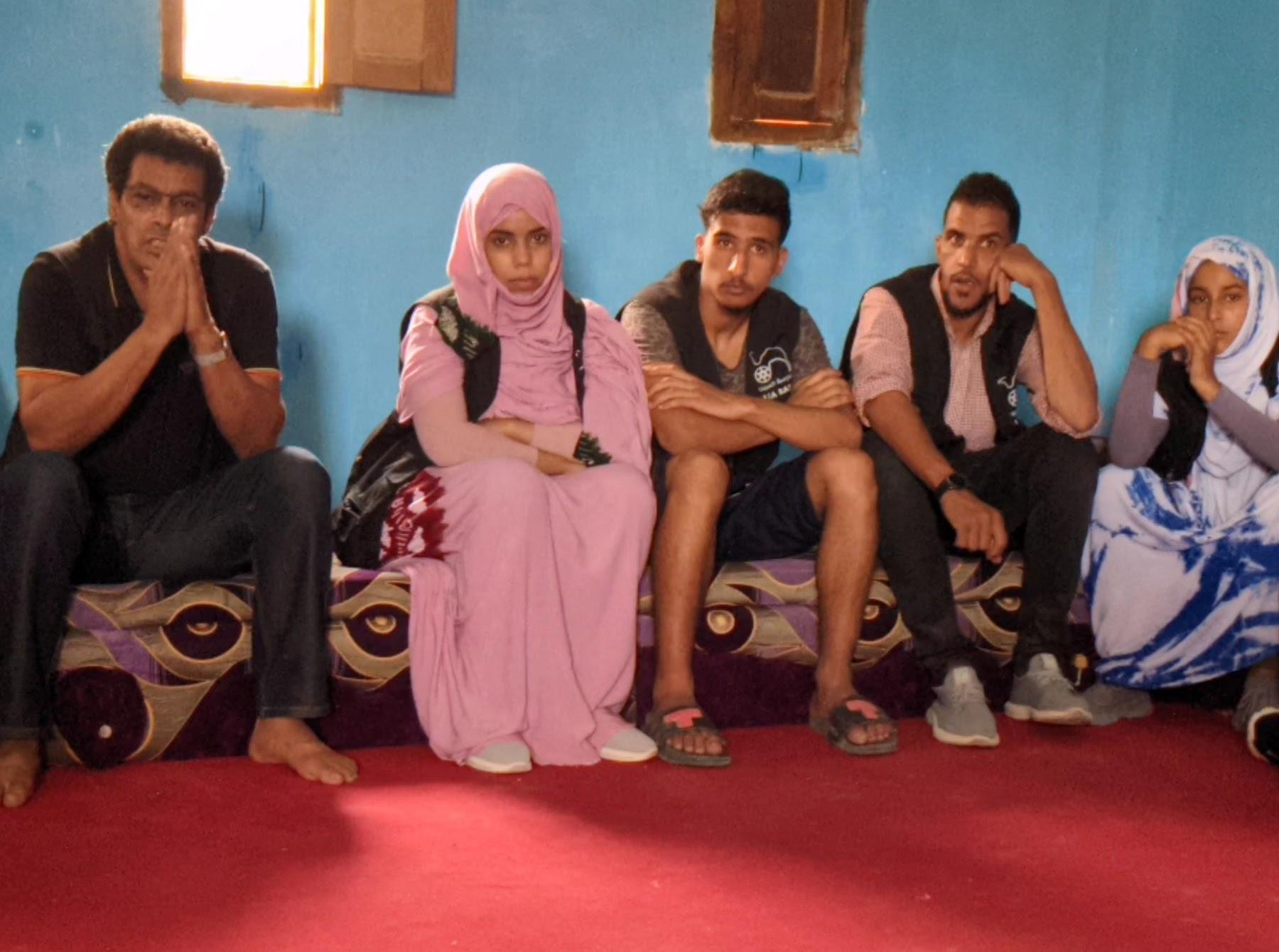
But, despite the odds, each evening, the festival screens films about the conflict and other human rights-related topics. Tents showcase Sahrawi nomadic culture, music and dance.
Maria Carrion is FiSahara’s executive director, and she’s well-acquainted with the challenges of holding an event like this in the middle of the desert. She explained that there are no theaters, so organizers have to build temporary screens. Strong winds sometimes force people inside, there are power outages and the equipment often breaks because of the elements.
Plus, when the festival first started, the locals were not used to watching feature length films.
“They treated it like more of a social event, with people coming and going,” Carrion said.
But now that they’ve grown accustomed to it, it’s become a powerful experience, she said, especially since they can now see their own lives represented on the screen.
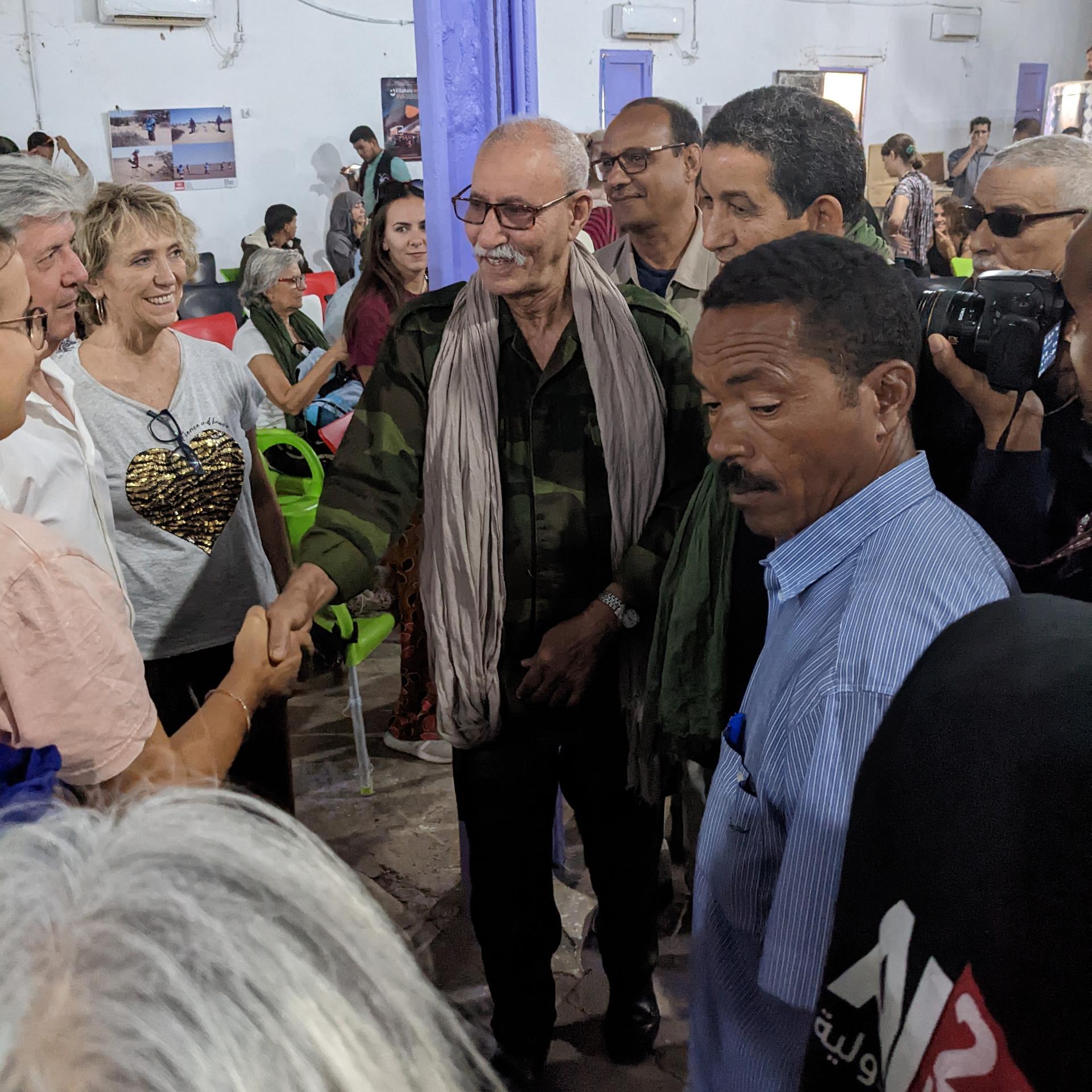
“The Saharawi people have been very clear from the beginning that no amount of rice, lentils or medicines are getting them out of here,” she said. “The only thing that will do that is if their voices are heard. And this festival is a way of echoing that call for freedom and for justice.”
Sahrawi President Brahim Ghali also expressed hopes that the festival would increase pressure from the international solidarity movement to end the ongoing conflict, and help Sahrawis in their campaign for decolonization and independence.
Growing popularity
FiSahara started out as an annual event, but it’s proven so popular that organizers have created a solar-powered, mobile cinema that shows films in the camps throughout the year. And they even opened a film school to teach local Sahrawis how to make movies of their own.
Azza Mohamed, 19, is one of the students. She had a short film in this year’s festival addressing the problem of drug use in the refugee camps.
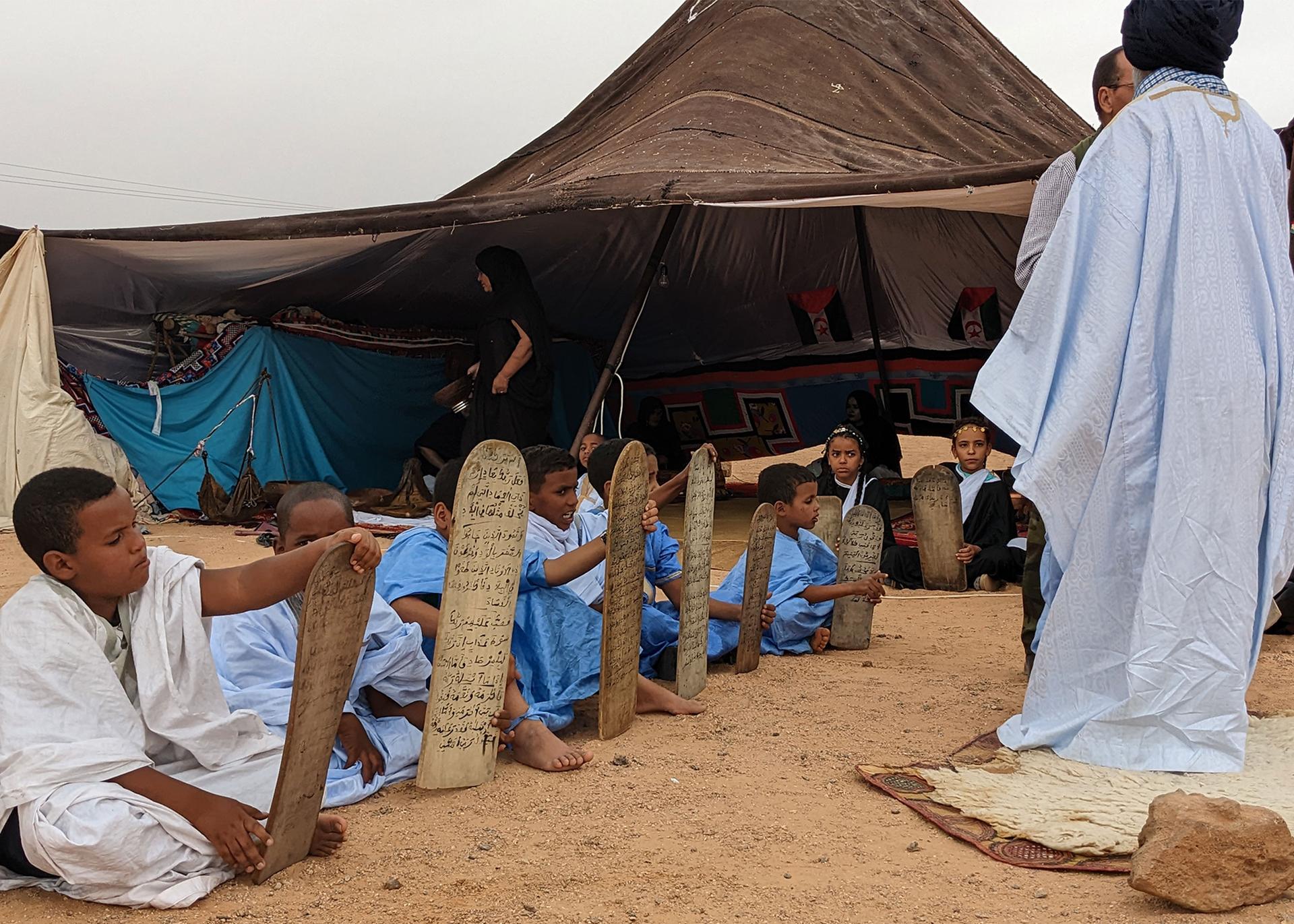
“You can be a doctor and you can save a few lives,” she said, “but after you die, you’ll no longer be able to help people. If you’re a filmmaker, though, you can have a larger footprint, because your work will live on in history.”
Although this was the 17th edition of FiSahara, it was the first one to take place since a long-standing ceasefire broke down and open hostilities resumed between Morocco and fighters from the Sahrawi government’s armed Polisario Front in November 2020.
Scott Gurian is the host of the Far From Home podcast.
Related: Spain and Algeria at odds over Western Sahara, energy and migration
